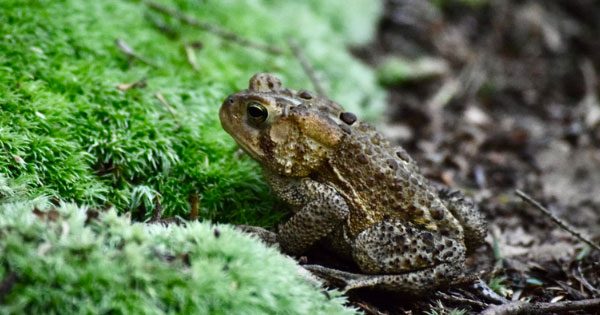
Keep your pet safe by understanding toad poisoning in pets! In Florida, it is crucial to know and understand the threat of toad poisoning to your pet and how best to handle them should it ever occur.
What Is Toad Poisoning
Toad poisoning can occur when your pet picks up one of the two toad species, Cane or Marine Toad (Bufo marinus) and the Sonoran Desert Toad (Bufo alvarius), with their mouth. These species of toads will secrete toxins through their skin as a defense mechanism.
Once a pet comes into contact with these toxins, they are absorbed through their mouth, nose, eyes, or even open wounds if they have any. The toxins then travel to the heart blood vessels through the blood and might even adversely affect the nervous system.
Toxins from big toads are more severe. Such toads include the Cane Toad, also known as the Bufo Toad, which is commonly found in Florida. These toads are often 6-9 inches long, so are much larger than native toads and frogs. These toads can be found year-round, however, numbers explode between March and September as they breed.
Signs of Toad Poisoning
It is vital to know some of the signs of toad poisoning to catch it early enough to save your pet’s life. After coming in contact with toad poison, the most common early symptoms include excessive salivation, vocalizing their discomfort, and may even begin to paw at their mouth increasingly. These actions will progress into clinical signs such as gagging, vomiting, seizing, weakness, disorientation, plus cyanosis.
In severe cases, cardiac arrhythmias may also occur. This situation can be very scary to a pet handler or owner. As soon as you see these symptoms, contact your vet to discuss and bring your pet in for a checkup.
What to Do and Treatment
If you realize that your pet has come into contact with a poisonous toad, speed is crucial in regulating the absorption and spread of the toxins. If ingested, flush your pet’s mouth and face with lots of running water. It is important to tilt the dog’s or cat’s head down so that its mouth is facing downward to flush the toxins out along with the water and point the hose down out of your pet’s mouth not down its throat so that the water is not swallowed.
The next step is to visit a veterinarian. Once you get to the vet clinic, treatment depends on the discernible symptoms at that point. For example, seizures will need to be controlled with medications, and abnormal heart rates and rhythms must be corrected.
It’s worth noting that the vet will focus on managing the recognizable symptoms as they develop. Unfortunately, there isn’t an antidote for toad poisoning. The severity of toad poisoning depends entirely on the type of toad and the speed at which care is given.
Prevent Toad Poisoning in Pets
Cane toads are mostly active at night. To prevent your pets from being poisoned, place them in an area of your yard that you can keep free of cane toads. Check this area for cane toads regularly, especially at night.
To prevent cane toads entry into your yard, remove as much free-standing water as possible. Cover swimming pools and turn off as many outside lights as possible. If you are really concerned about cane toads entry in your backyard, you can consider placing a fence with cloth or mesh (no greater than 1-inch holes) to ensure there are no gaps.
Naples Coastal Animal Hospital Can Help Your Pet
If you suspect your pet may have been poisoned please contact our office.
For all your pet’s routine vaccinations, health evaluations, and diagnostics needs, reach out to our vets today.
